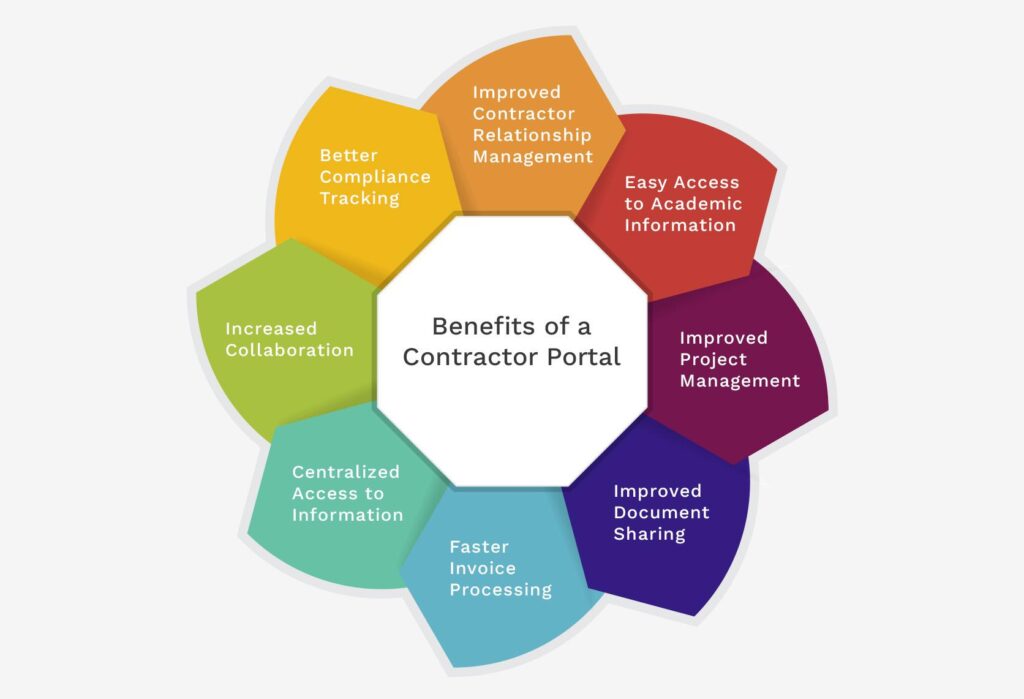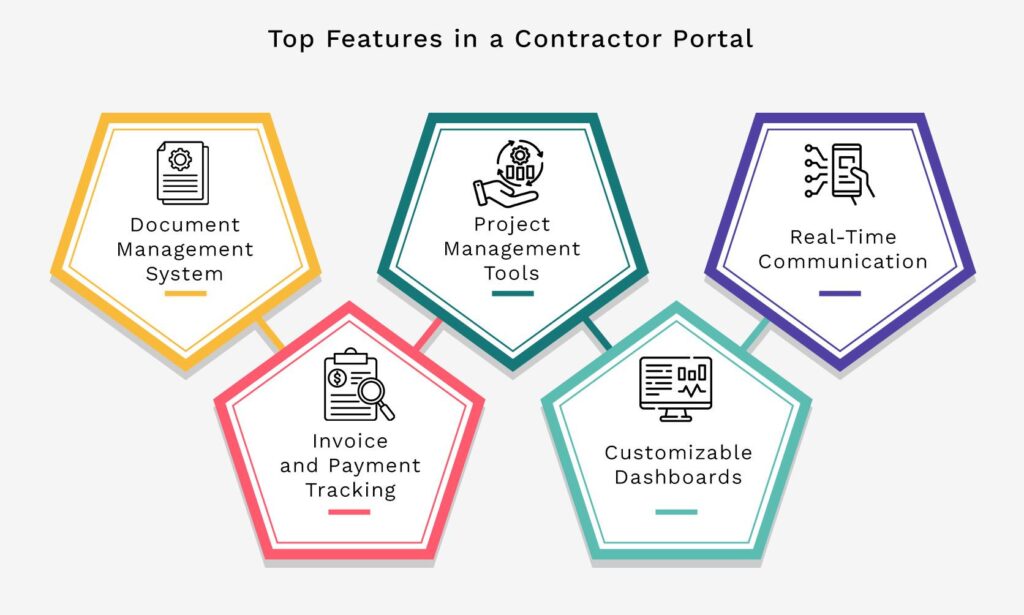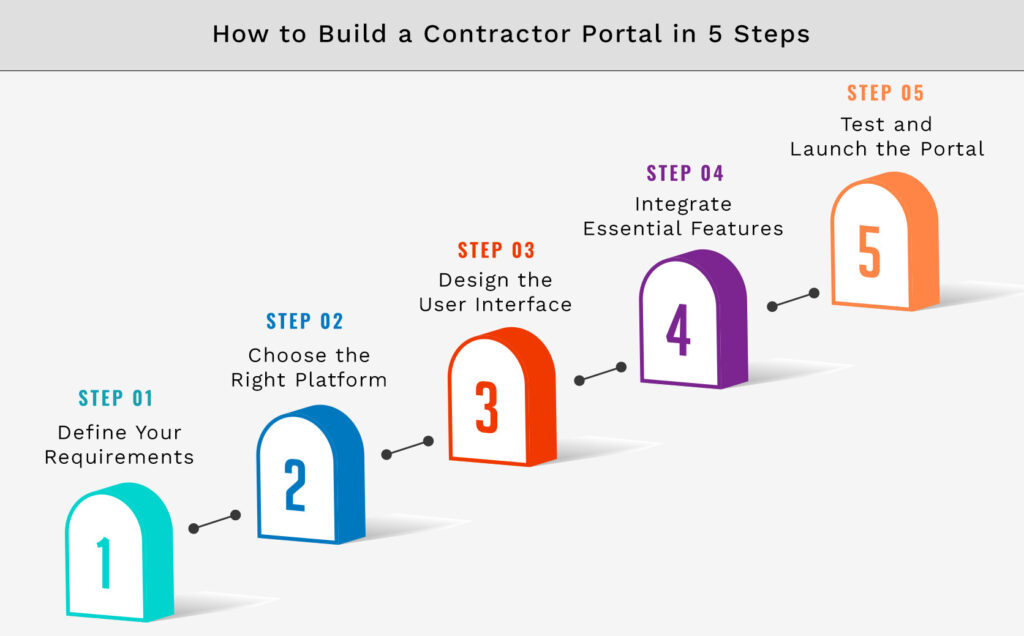As more businesses look for effective contractor management, the market is expected to hit $4 billion by 2028. A contractor management system keeps workers safe and ensures they follow the rules. Yet, many companies find it hard to create a good way to manage contractors that saves time and money. With more contractors to handle, making a Contractor Portal is now more important than ever.
A Contractor Portal is a central place for both inside and outside people to manage projects better. It lets you see, share, and change important data while making sure only the right people can do it.
In this article, we'll show you the basic steps to make a Contractor Portal. This will help you see the many good things a strong contractor management system can do.
What is a Contractor Portal
A Contractor Portal is an online space for different groups to collaborate easily. It's a central place where contractors and project managers can find and share project info. This makes it easier for everyone to do their jobs well without mistakes or long emails.
This platform does more than just talk; it changes how projects are managed. Users can update their information, manage tasks, and submit timesheets. It helps everyone work together better and see what needs to be done, leading to better results.
Why is a Contractor Portal Important
Contractor Portals play a big role in making projects run smoothly. They help with tracking costs, monitoring progress, and getting approvals. With more complex projects and many people involved, a central system makes things easier to manage.
Using a Contractor Portal helps avoid mistakes and keeps everyone on the same page. It keeps projects on track, prevents delays, and helps manage contractors better, keeping them informed and working together well.
With new rules on Affirmative Action Plans, a Contractor Portal is very helpful. It makes it easier to follow rules and get ready for audits. Not following rules can lead to big problems, like losing contracts or facing fines.
Benefits of a Contractor Portal
Using a contractor portal benefits your daily work and project management. It improves how contractors work together and makes your business processes smoother.
Streamlined Communication
Communication improves with a contractor portal. It cuts down on long email threads and makes talking in real time easier, leading to a more united team.
Improved Project Management
A contractor portal makes it easier to see how tasks are going and what they cost. You can monitor many projects at once, which helps everyone stay on the same page and do their jobs well.
Improved Document Sharing
Storing documents in one place reduces the likelihood of losing them. A contractor portal makes sharing documents easy and keeps work flowing smoothly.
Faster Invoice Processing
Automating invoices means you get paid faster. This helps your cash flow and keeps your finances in order. It also helps you keep good relationships with contractors.
Centralized Access to Information
With a contractor portal, all project information is in one spot. This makes finding what you need quick and easy, saving time and making work more efficient.
Increased Collaboration
A contractor portal improves teamwork. It has shared spaces for working together and talking, which leads to better results and a stronger team spirit.
Better Compliance Tracking
Keeping track of rules and regulations is easier with a contractor portal. It helps avoid legal problems and makes sure everyone follows the rules.
Improved Contractor Relationship Management
A contractor portal improves working with contractors. It has features that make talking and working together easy, helping build stronger, more positive relationships.

Top Features in a Contractor Portal
A contractor portal's success depends on its key features. Knowing these can greatly improve how you handle contractors and make things more efficient. A good contractor management software should be easy to use and organized and should help teams work together.
Document Management System
A good document management system reduces paper problems. It makes finding and sharing important files easy, reducing the chance of losing documents and making information more accessible in your contractor portal.
Project Management Tools
Project management tools help with assigning tasks, planning, and managing resources. These tools keep projects on track, meet deadlines, and use resources wisely.
Real-Time Communication
Real-time communication tools keep everyone updated. Instant messages and alerts help solve problems quickly, reducing delays and improving teamwork.
Invoice and Payment Tracking
Automated tracking of invoices and payments is a must. It simplifies the billing process and lets you monitor payments and invoices, saving time and making financial management more efficient.
Customizable Dashboards
Customizable dashboards let users tailor their views to show what matters most. This makes it easier to focus on key contractor management and project performance metrics, increasing user engagement and productivity.

How to Build a Contractor Portal in 5 Steps
A careful plan is needed to create a Contractor Portal that fits your company's needs. Follow these steps to create a portal that helps your team and improves project management.
1. Define Your Requirements
First, determine your company's needs. Consider features like user roles and document access.
2. Choose the Right Platform
Pick a platform that works well with your current systems. The best choice will help you meet your portal goals and work with your tools. Look at ease of use, growth potential, and support options.
3. Design the User Interface
The design should be easy for everyone to use. A simple design helps users navigate better and enjoy their experience.
4. Integrate Essential Features
After designing, add important features. Things like document management and messaging improve the portal. Also, consider adding document attachments and GPS for updates.
5. Test and Launch the Portal
Testing before you launch helps find and fix problems. Get feedback from users to make sure it meets their needs. After testing, launch the portal and offer support for a smooth start.

Conclusion
A Contractor Portal helps companies with communication, document sharing, and project tracking, making contractor management more effective.
With the deadline for federal contractors to certify their plans by July 1, 2024, these portals are more important than ever. They help with compliance and reporting.
Challenges like 80% of contractors missing the deadline show why a good Contractor Portal is essential. It helps keep relationships clear and strong, leading to better projects and more efficiency.
As companies deal with the ups and downs of contractor work, a Contractor Portal is a smart choice. It makes managing these partnerships easier and safer. It also helps with following rules and building strong, lasting relationships.
If you're ready to integrate a contractor portal into your business, contact Kohezion to learn how we can help you create a tailored solution that meets your needs.
Start building with a free account
Frequently Asked Questions
A contractor portal can benefit both contractors and project managers. Contractors can streamline workflows, improve communication, and access important documents from anywhere. Project managers can track progress, manage budgets, and better oversee their projects.
Contractor portals typically use security measures such as encryption, secure login, and role-based access controls. These features help protect sensitive data and ensure that only authorized users can access specific information. Regular security updates and backups are also important to maintain data integrity.
While many contractor portals are designed to be user-friendly, some training may still be necessary, especially for complex features. Providing training sessions or resources can help users understand how to navigate the portal effectively. This investment in training can lead to higher user adoption and more efficient use of the system.
The cost of implementing a contractor portal can vary widely based on features, the number of users, and whether it's a cloud-based or on-premises solution. Some portals charge a monthly subscription fee, while others may have a one-time licensing cost. Consider not only the initial cost but also ongoing maintenance and support when budgeting for a contractor portal.

